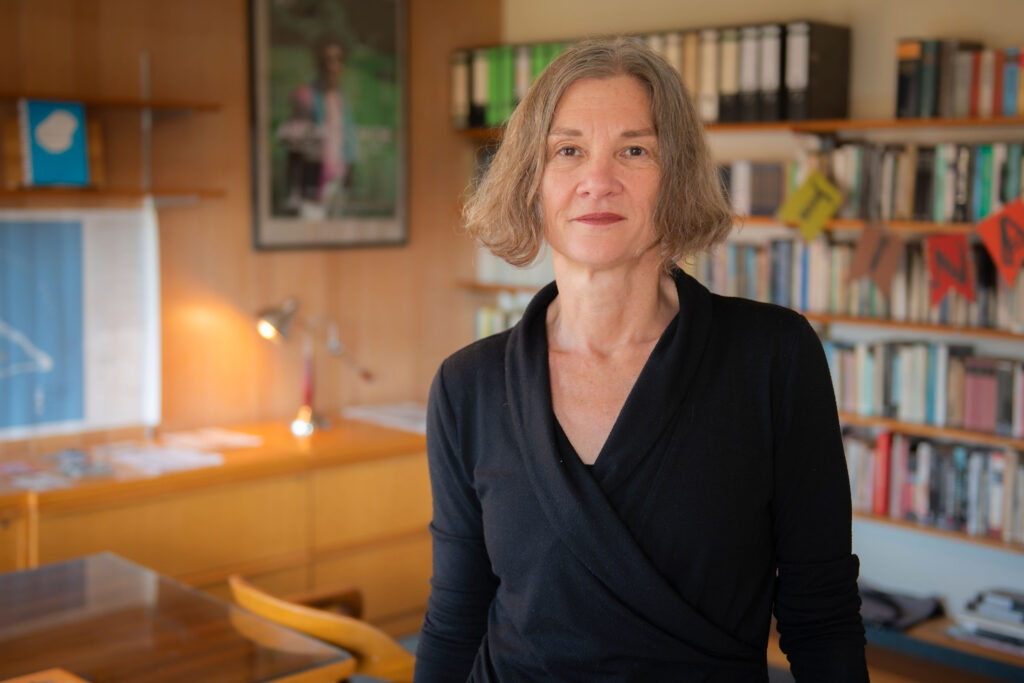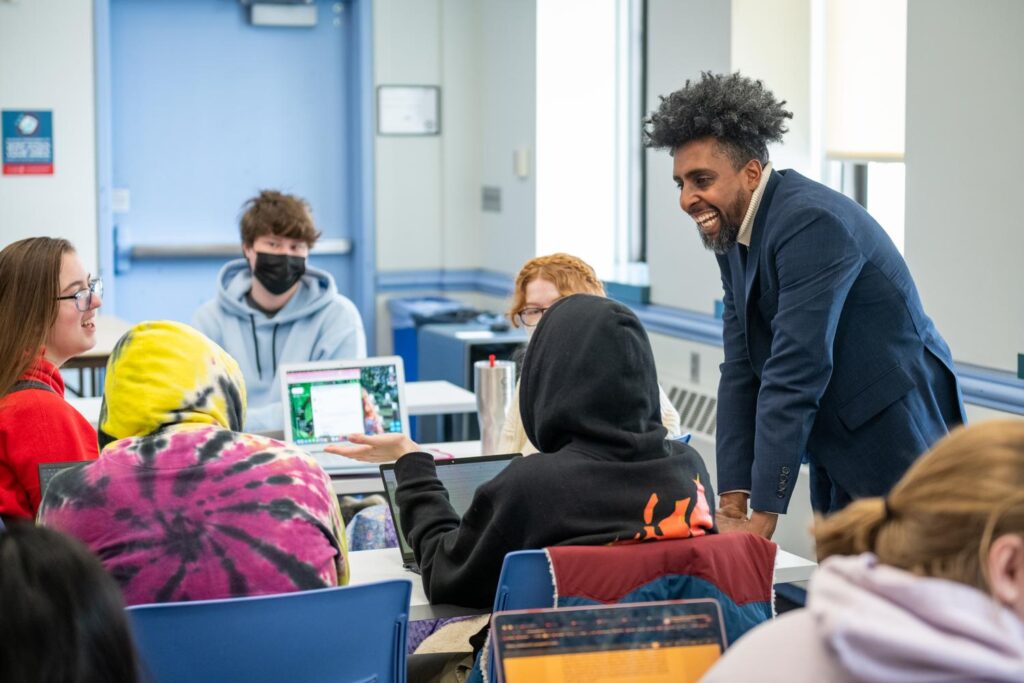Challenge. Change. Podcast
The art of addressing sea level rise

“I end every class session by saying, ‘What can we do to address this issue?’ ” says Professor Christina Gerhardt, who joined Clark’s Department of Language, Literature, and Culture as the new Henry J. Leir Endowed Chair of Comparative Literature. She also is affiliated with Clark’s Environmental Humanities Research Collaborative and the School of Climate, Environment, and Society.
Professor Christina Gerhardt, Clark’s Henry J. Leir Endowed Chair in Foreign Languages and Cultures, Language, Literature & Culture, is an open water swimmer who typically lives near oceans and grew up with a front-row seat to her aunt’s political work as one of the co-founders of the Green Party in what was then West Germany.
It created a clear path to Gerhardt’s current work as a scholar of the environmental humanities with a focus on sea level rise. Her book, Sea Change: An Atlas of Islands in a Rising Ocean, provides a history of sea rise while telling the stories of frontline communities, with poems and art made by Islanders woven into the volume’s pages. The reality of sea change is urgent and daunting, and Gerhardt prioritizes solutions and hope in her book — and in her classroom.
“I’m trying to equip people with all the tools to go into the world and make it a better place,” she says, “with the optimism and feeling that they have the tools in their toolbox to accomplish that work.”
On this episode of Challenge. Change., Gerhardt — who is affiliated with Clark’s Environmental Humanities Research Collaborative and the School of Climate, Environment, and Society — discusses why the environmental humanities is at its best when it is interdisciplinary, and explains some of the soft and hard engineering options to address sea level rise.
If you enjoyed this episode, check out “Sea Turtles and the Role Charismatic Creatures Play in Environmental Humanities with Professor Stephen Levin.”
Challenge. Change. is produced by Melissa Hanson for Clark University. Listen and subscribe on Spotify or Apple Podcasts. Find other episodes wherever you listen to podcasts.

The environment and the humanities on Challenge. Change.
Why AI language can’t be artificial with Professor Eduard Arriaga-Arango
Studying Plant Traits to Feed the World in 2050 with Professor Chandra Jack
Taking the Temperature of Global Health with Professors Ellen Foley and Tsitsi Masvawure


